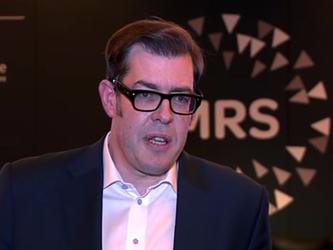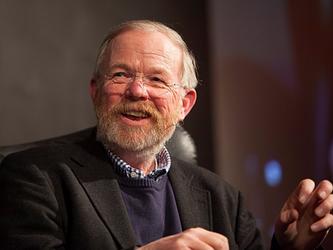How to do well by doing good
The session, the second of the conference to explore how insight can be used for benevolent purposes, was chaired by research consultant Fiona Wood and started with a presentation by Emily Fu of TNS BMRB and Justin Webb of Macmillan Cancer Support.
Fu and Webb talked about their work on encouraging cancer sufferers to do physical exercise: 77% of those living with cancer are not active to recommended levels, despite growing evidence for cancer-specific benefits of activity. The research looked into the various barriers that would prevent this activity, encompassing individual barriers and those related to social networks, physical symptoms and the physical environment.
The research highlighted the importance of educating individuals as well as health care professionals (HCPs) on the benefits, which was then achieved via HCP education and media coverage.
The second session, from Philly Desai of Turnstone Research and Mansir Nasir of Voices for Change (pictured), discussed the extensive work done by that partnership on 'selling’ gender equality in Nigeria. The pair realised that in order to make people’s attitudes to women more positive, the fundamental perspective of communication needed to change. "Communications tend to come from the perspective of the communicator, rather than that of the target – for example: ‘put more women on boards', and ‘value the rights of women'.
"We needed to mirror the aspirations and beliefs of women."
The project uncovered a number of insights, including how violence towards women was widely condemned but still common in practice; young Nigerians supported women in leadership but expected resistance from society; and that it would be necessary to create a brand identity that appealed to men and didn't alienate women. "We needed to inspire, not lecture, and create a social movement for change."
Lastly, Jackie Hughes of Flamingo and Catriona Ferris of Unilever outlined a joint Persil and Unicef programme to improve education in Brazil, India and Vietnam. They uncovered the insight that parents’ – and childrens’ – attitudes towards a child starting school is universal, regardless of where they live and who they are. This was used to inform how the partnership could most improve access to education. "You can do well by doing good," said Ferris. "By creating a purpose you can grow your brand."
Ferris also underlined the importance of "being brave together", as well as being sure to celebrate when a programme is put into place.
"Bravery and partnership is hard work," she said. "Do something to reward the launch of a campaign."

We hope you enjoyed this article.
Research Live is published by MRS.
The Market Research Society (MRS) exists to promote and protect the research sector, showcasing how research delivers impact for businesses and government.
Members of MRS enjoy many benefits including tailoured policy guidance, discounts on training and conferences, and access to member-only content.
For example, there's an archive of winning case studies from over a decade of MRS Awards.
Find out more about the benefits of joining MRS here.














0 Comments